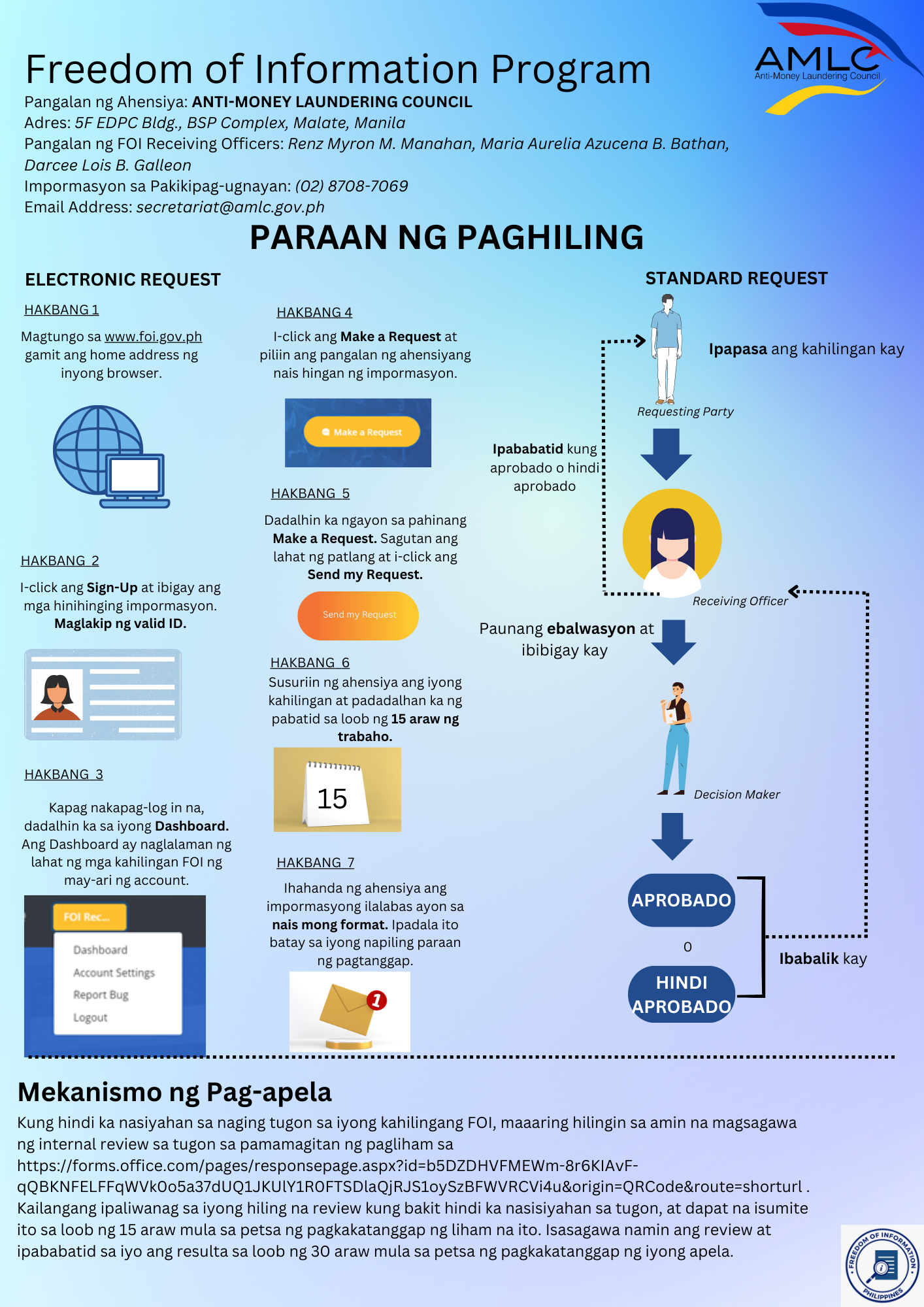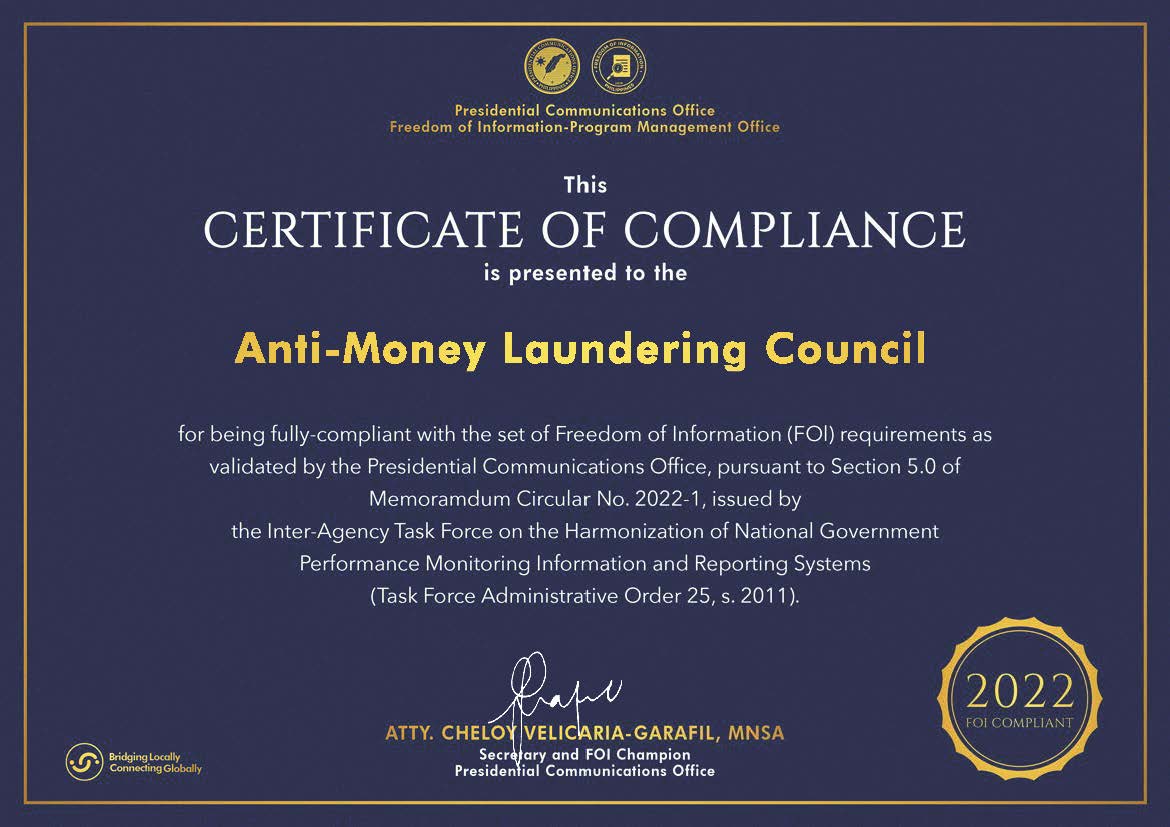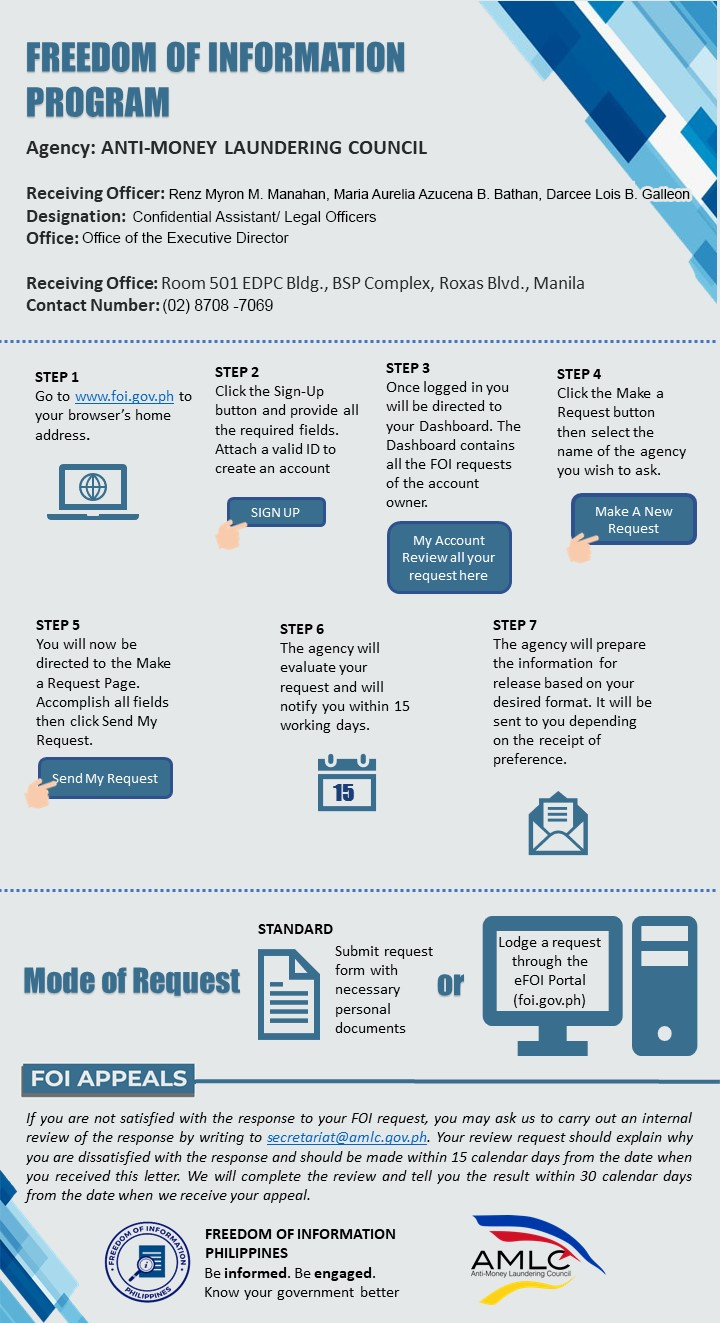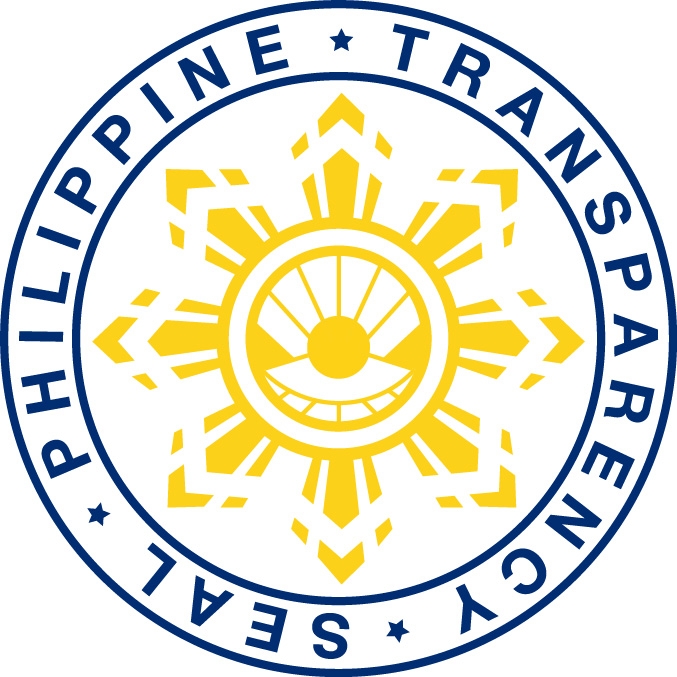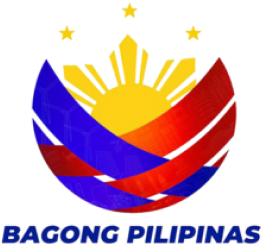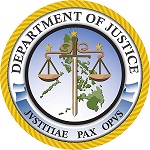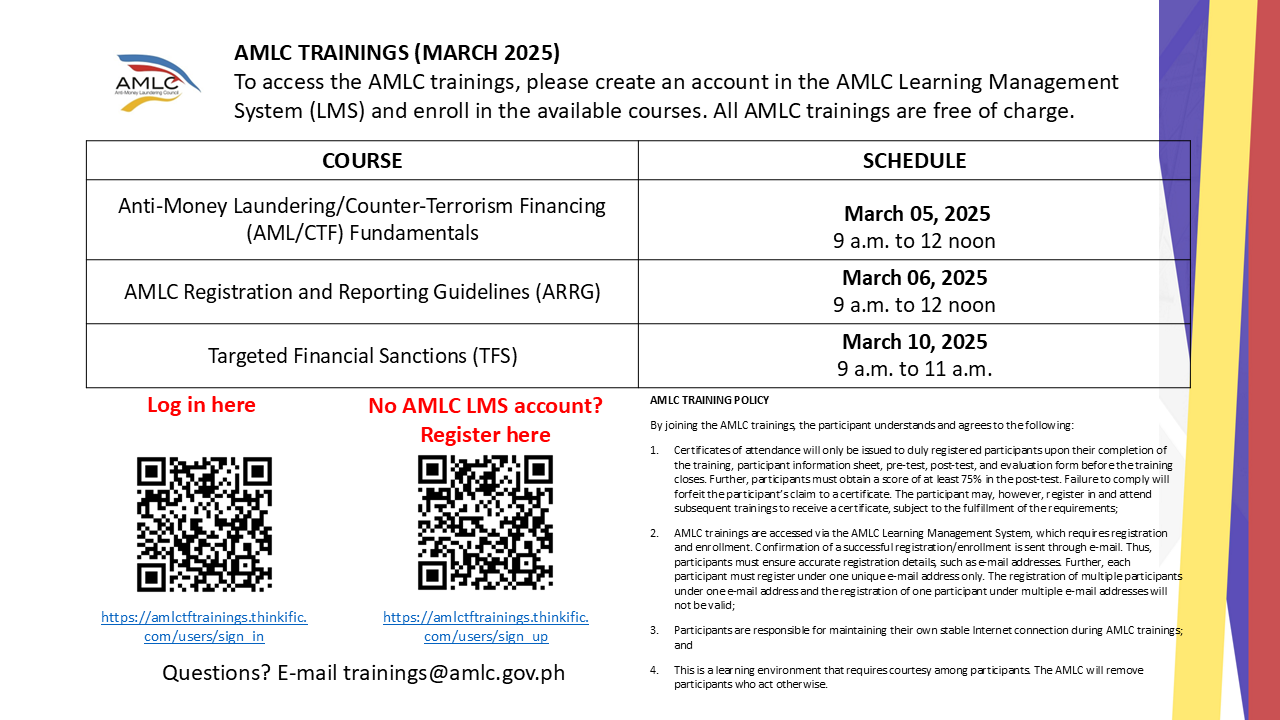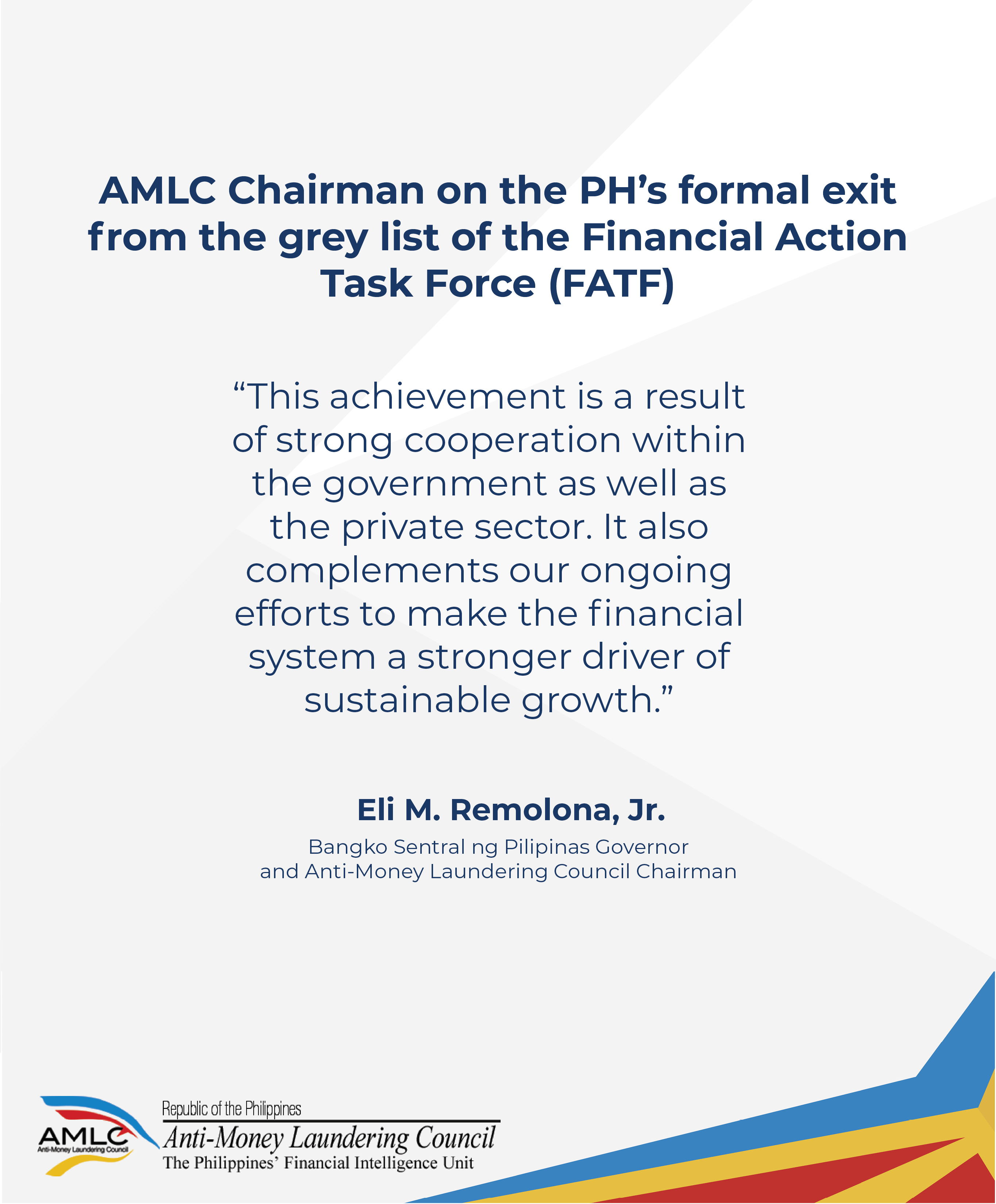Indefinite Suspension of Registration of CPs Allegedly Involved in Scams
Registration with the AMLC is free and via online system. Republic Act No. 9160 (AMLA), as amended, requires the registration of covered persons (CPs) to enable them to electronically submit covered transaction reports (CTRs) and suspicious transaction reports (STRs). AMLC registration does not vest upon registrants the authority to conduct business; the appropriate regulatory or licensing office only can give such authority.
The AMLC made the registration procedure easy for CPs. However, certain unscrupulous individuals and entities take advantage of this convenience and were able to secure AMLC registration to somehow provide them color of authority to perpetrate their scamming activities.
The AMLC sternly warns these unscrupulous entities to immediately desist from illegal activities or be administratively or criminally prosecuted. The AMLC indefinitely suspends the registration of CPs pending investigation of their alleged involvement in scamming activities.
The AMLC also reiterates its advice to all CPs to deal only with other CPs with valid and subsisting Provisional/Certificate of Registrations (P/CORs). The updated list of registered CPs is regularly posted at www.amlc.gov.ph. The AMLC advises the public to make it habit the exercise of due diligence in all their dealings.




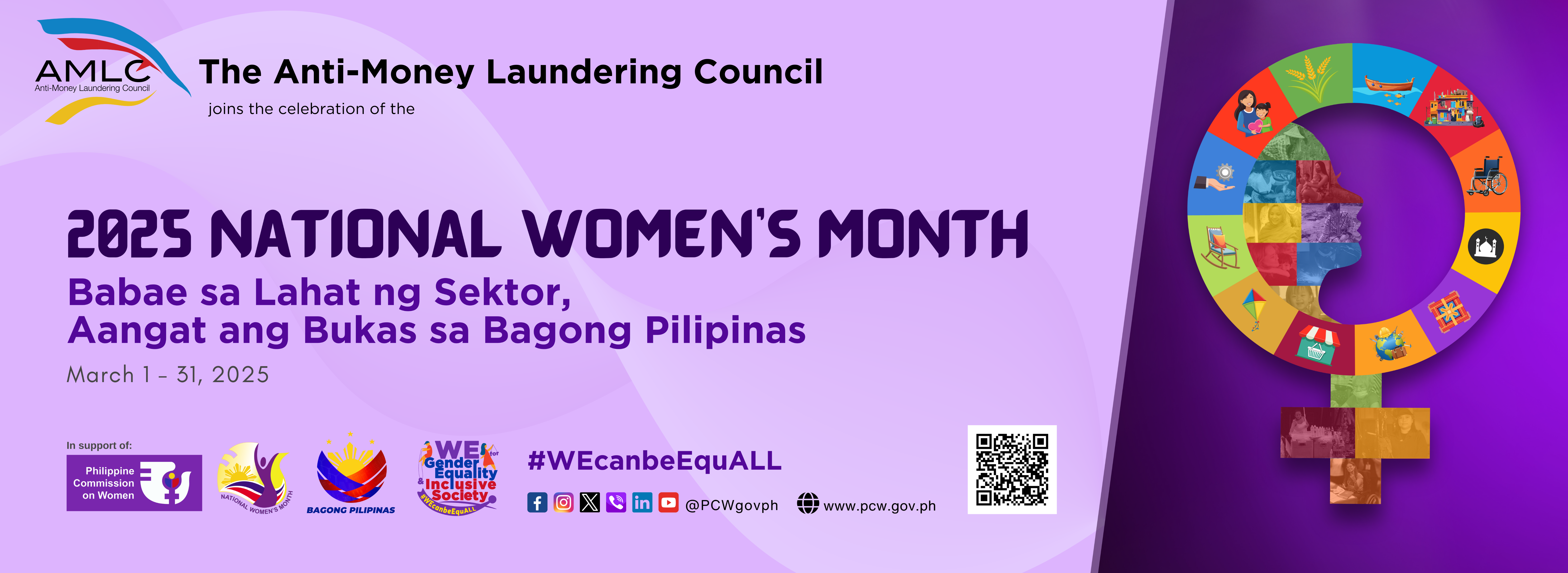


 REVISED 2 3.jpg)

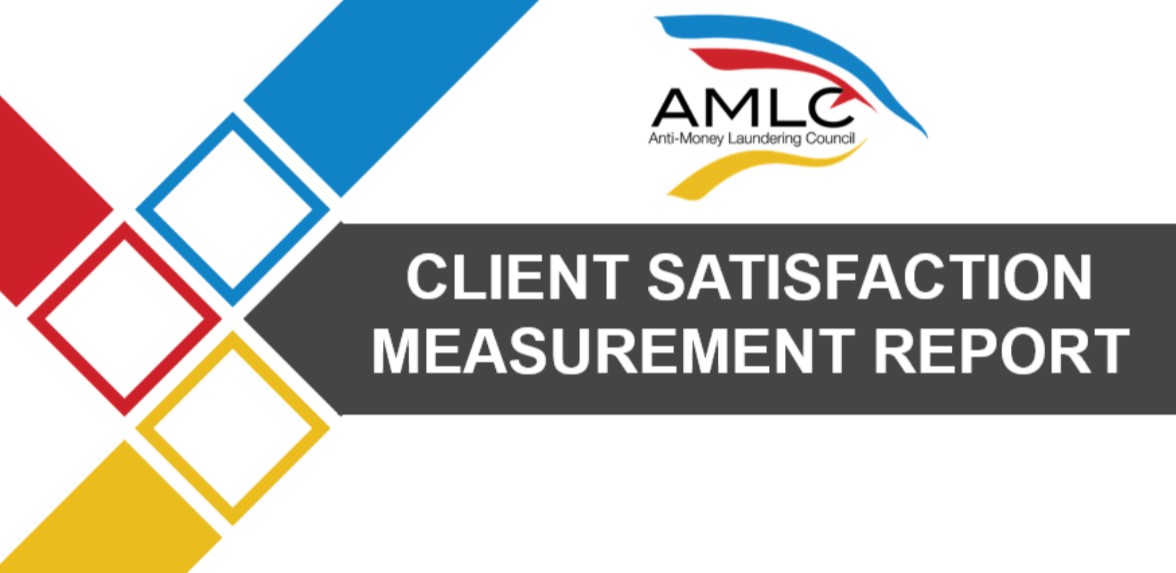 2024 (First Edition)
2024 (First Edition)